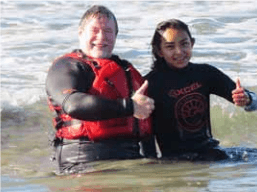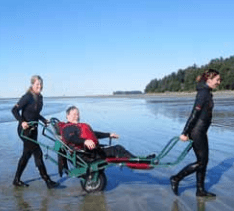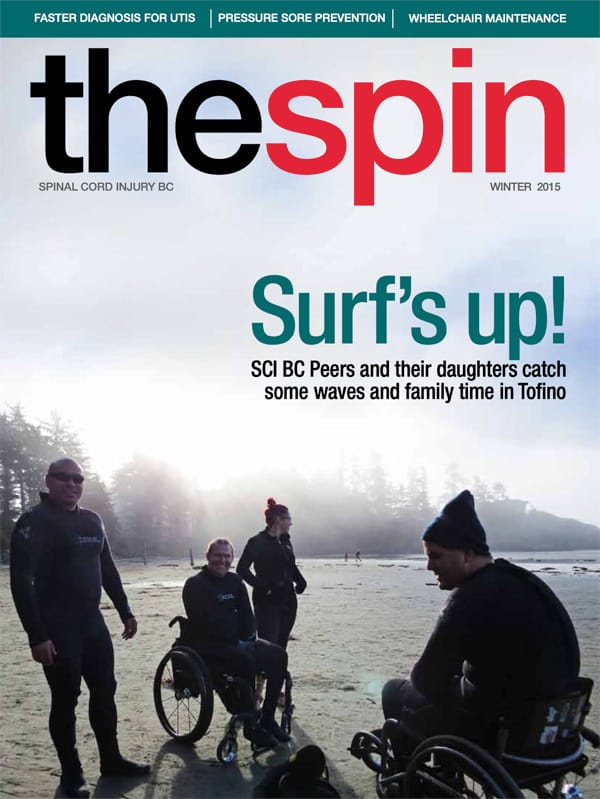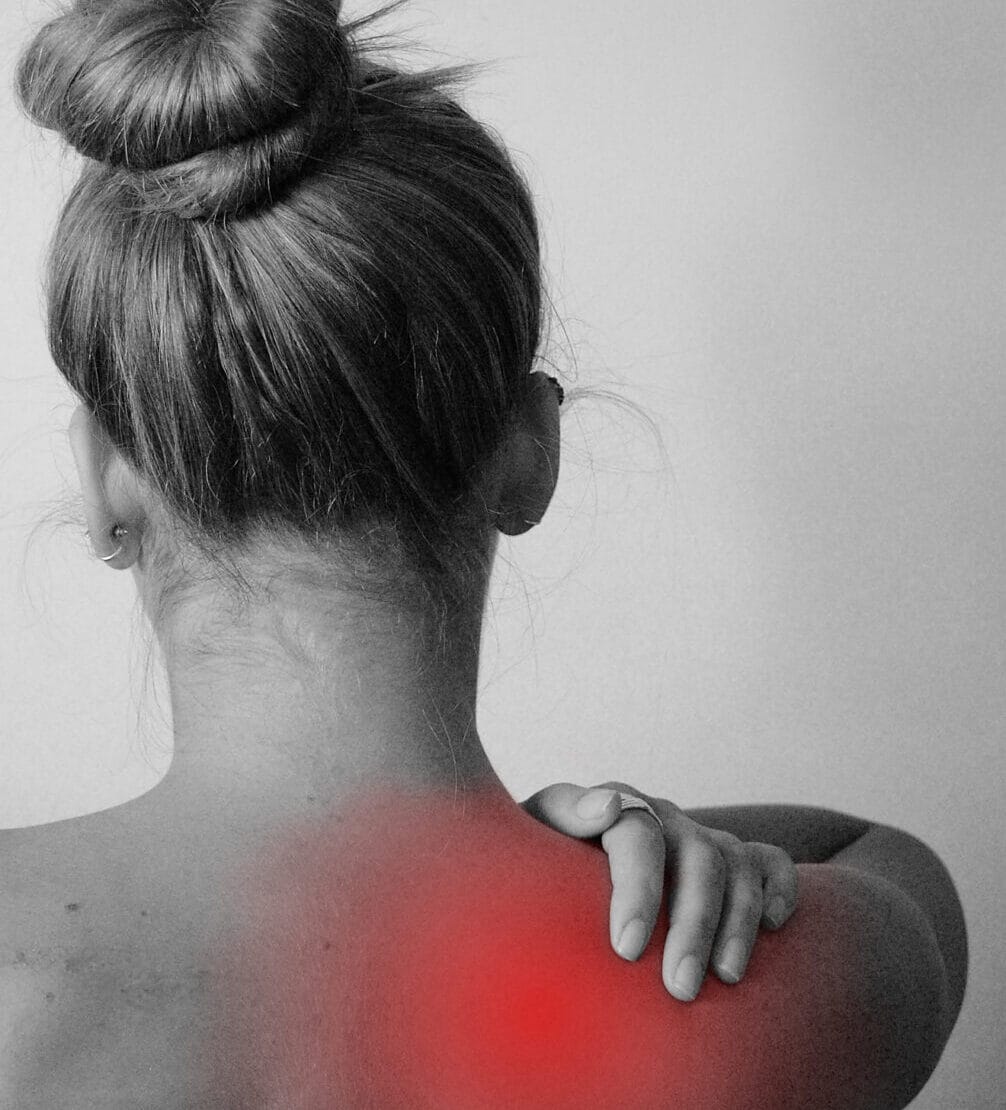
Family connections are forged in the waves during a memorable weekend surf trip for SCI BC peers and their daughters.
For Scott Heron, SCI BC’s Victoria-based Peer Support Specialist, the only thing better than catching a wave was watching his daughter catch her own.
“Surfing is exhilarating,” he says. “That excitement and rush as you catch a wave. It lifts you up and you almost feel a sense of weightlessness as you speed down the wave. The only feeling that matches it was being able to see my daughter stand up and catch her first wave.”
Scott and his daughter, Breanna, 13, (pictured here) were one of four family duos from Spinal Cord Injury BC on the father-daughter surf trip with Power To Be this fall. Based in Victoria and Vancouver, Power To Be works closely with community partners to facilitate adventure-based programs and outdoor activities. This second annual trip, a weekend adventure in Tofino, provided a chance for the participants to try something new and challenge their perceptions of what is possible—and to strengthen family bonds in doing so.
“This isn’t something that I went to watch her do; this is something we did together,” Heron says. “Often, as a parent with a disability, we end up being spectators to our kids’ achievements. With this, I was a full participant with her in those achievements.”
This year, three other father-daughter teams from the Island—Terry and Melina Fowler, Miles and Lilly Stratholt, and Michael and Madeline Cameron (pictured above catching a tasty wave)—shared a similar experience in the waves.
With additional funding from the United Way of Greater Victoria and support from surf instructors with Pacific Surf School, the group spent two days in the ocean using a variety of adaptive equipment to transition from beach to board. With TrailRiders and all-terrain wheelchairs, as well as special seats for the boards, the fathers were able to get comfortable in a new environment.
“The biggest challenge was getting people to and from the water,” says Carolyn McDonald, Power To Be community development coordinator. “We would transfer from their wheelchairs into the TrailRiders, which we would walk right out intothe water so it was waist deep. Then they could transfer right onto the board, using their arms and the added buoyancy of the water.”
With Power To Be staff waiting to catch the surfers in the shallows and Pacific Surf School instructors supporting them in the swell, the duos learned the nuances needed to conquer wave after wave.


“Seeing the growth was amazing,” says Gaby Emmett, Power To Be program facilitator. “Especially in some of the participants who came out last year, both the daughters gaining confidence in standing up and the dads catching waves on their own.”
After the first day, the families shared a meal and talked about the experience. It was an opportunity to swap stories of soreness and achievement, Heron says, noting tackling the waves was like doing 500 push ups in one day. The next morning they were all eager to do it again.
“It was equally powerful for the daughters to see their dads as it was for the dads to see their daughters cruising around on the water,” says McDonald.
As the weeks pass after the trip, Heron and his daughter are still talking about it. It comes up in conversation, and always with laughter. It doesn’t escape him that the weekend was also an opportunity to show his daughter that a disability doesn’t have to limit experiences.
“To show her that there are abilities and possibilities to do things together with the assistance of a group like Power To Be is just amazing,” Heron says. “How many other people can say that? Here I am, a person with a disability who has been out surfing with my daughter. She’s sharing this event with her friends and they’re getting to see her dad in a completely different light.”
This story is adapted with permission from Power To Be, which offers adaptive recreation programs such as kayaking, hiking, and surfing in Victoria and Vancouver. Power To Be uses adaptive equipment—like adding pontoons to a kayak for stability or using a TrailRider for hiking—to support people with different levels of mobility.
Photo Credit: Michelle Cameron.
Another version of this story can be found in the Winter 2015 issue of The Spin. Read more stories from this issue, including:
- Pressure sore prevention
- Wheelchair maintenance
- Migraines and SCI
And more!
Read the full Winter 2015 issue of The Spin online.




